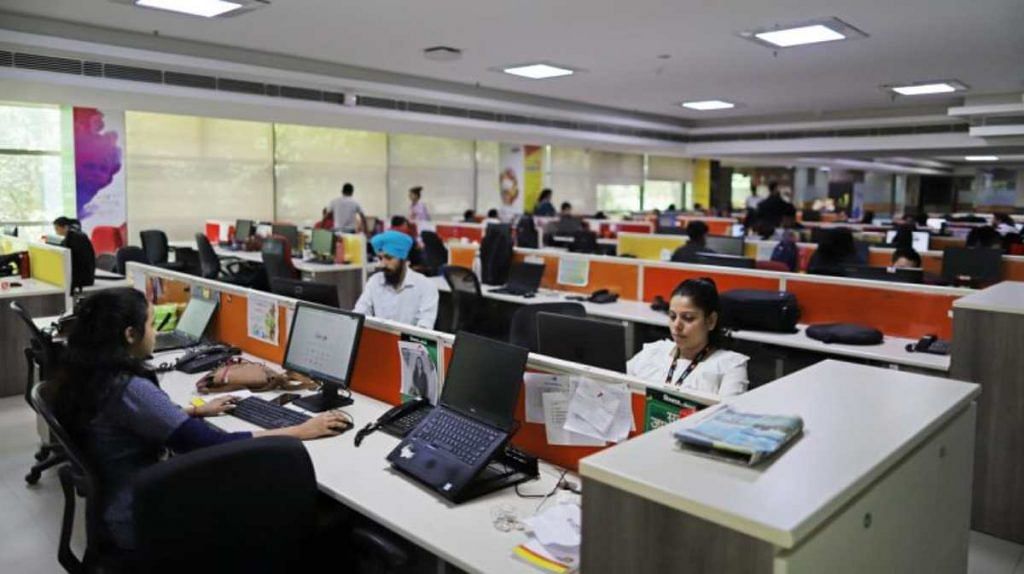New Delhi: To ensure a safe workplace for women employees, the new labour rules being firmed up by the Centre will mandate that establishments, including factories and construction firms, where women have given their consent to work after 7 pm, will not only have to provide them transport, but also ensure that there is a creche on the premises, ThePrint has learnt.
Besides, such establishments will also have to ensure that the workplace is well lit, and there is adequate sanitation and canteen facility available on the premises.
These will be part of the draft Occupational Safety, Health (OSH) and Working Conditions (Central) Rules, 2020, that the Ministry of Labour and Employment is firming up. Without notifying the rules, the law will not become operational.
Senior labour ministry officials told ThePrint the rules are likely to be put in public domain next week to invite comments and suggestions, after which they will be finalised and notified.
The Occupational Safety, Health and Working Condition Act, 2020 — one of the three labour codes passed by the Parliament in September — allows women employees to work at night, that is, beyond 7 pm and before 6 am, subject to conditions relating to safety, holiday, working hours and their consent.
However, if respective state governments consider that the employment of women is dangerous for their health and safety, in an establishment or class of establishments because of the nature of their operations, they can prohibit the employment of women in such places.
The Act also mandates that no employer should knowingly employ a woman in any establishment in the first six weeks following the day of her delivery, miscarriage or medical termination of pregnancy.
“The Act empowers women workers by giving them the choice to decide if they want to work at night. But the rules will spell out the specific conditions that employers will have to provide for if women staffers give their consent to do night shift,” a senior labour ministry official told ThePrint on the condition of anonymity.
Also read: Millions of women absent from India’s workforce capable of adding Rs 30 lakh crore to GDP
States can decide hours of work
The rules in the works also suggest that no worker should be allowed to work in an establishment for more than six days in a week.
The draft rules will, however, leave it to the states to specify the working hours in a day or week in different establishments. “We have left it to the state government to decide the working hours in their respective states,” a second ministry official said.
“Though in case of overtime, the worker will be paid wages, which shall be double the rate of wages that he is paid. The overtime will be calculated on a daily or a weekly basis,” the official added.
Rules could be notified before April 2021 deadline
The first ministry official quoted above said though they have been given a deadline to notify the rules by 1 April 2021, the ministry intends to do it before that.
“We have already put the rules for Wage Code and the Industrial Code in the public domain. We intend to put the Occupational Safety and Working Condition rules next week followed by the rules on Social Security Code,” the official said.
While the Code on Wages was passed by the Parliament last August, the remaining three codes got the green signal this September.
The three codes are aimed at simplifying the country’s archaic labour laws and give impetus to economic activity without compromising workers’ benefits.
Also read: India’s workplaces need to understand menstruation better. Period
